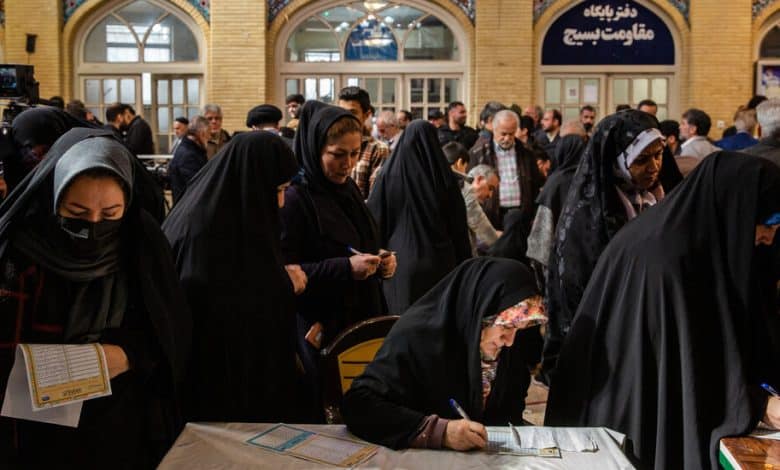Many Iranians Boycott Vote, Despite Officials’ Pleas and Roses at Polls

Iran held parliamentary elections on Friday, but despite officials’ last-minute attempts to increase voter turnout with pleas on social media and roses at polling stations, many people stayed away from the ballot in an act of protest against the government, according to witnesses, interviews and news reports.
In the capital, Tehran, the turnout was estimated at 11 percent, and across the country, turnout was around 30 percent to 40 percent, even with polls extending their opening hours to 10 p.m. from 8 p.m., according to news reports and the hard-line parliamentary candidate Ali Akbar Raefipour in a post on social media.
The current speaker of the Parliament, Gen. Mohammad Ghalibaf, a commander of the Revolutionary Guards Corps who is running for re-election on the conservative ticket, took to the social media platform X on Friday to plead with people to call at least 10 others and urge them to vote.
“It’s not just winning the elections that matters, increasing participation is also a priority,” General Ghalibaf said in his post.
For many ordinary Iranians fed up with a faltering economy — and with the government’s oppressive rules and violent crackdowns on peaceful protests — their demands for change extend far beyond what is offered by the existing political parties, with their reformist and conservative factions.
Ahead of the vote, calls for a widespread boycott of the election had gained steam, with prominent activists and dissidents encouraging Iranians to turn the occasion into a protest against the government. The jailed Nobel Peace Prize laureate Narges Mohammadi said in a statement that boycotting the vote was a “moral duty.”